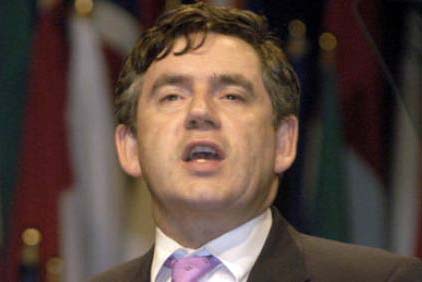For Gordon Brown, G20 summit holds double challenge
 London - The rotation that decides the venue for summit meetings of the world's most powerful nations has provided British Prime Minister Gordon Brown with a chance to take to the world stage.
London - The rotation that decides the venue for summit meetings of the world's most powerful nations has provided British Prime Minister Gordon Brown with a chance to take to the world stage.
When he announced what he called the "historic meeting" back in November, Brown's satisfaction at hosting the G20 summit and, at the same time, welcoming US President Barack Obama on his first trip outside North America, was palpable.
It will not have diminished. But, in the intervening months, the agenda has inevitably moved on as the global financial and economic crisis shows no sign of abating and Brown's fortunes at home are stuck firmly at the lower end of the political barometer.
The summit on April 2 is seen as presenting a double challenge for Brown: to hold together international unity on the measures required to prop up the faltering world economy, and to secure his own political future.
Since the beginning of the crisis, the words "international solution" have rarely been off Brown's lips, reflecting his genuine belief that this is the time for multilateral cooperation as the danger of protectionism looms.
There are, however, worrying signs that the summit will not produce the "global new deal" hailed by Brown among the big powers to combat recession and reform international financial institutions.
Commentators in London are pointing out that, even after Brown's success in becoming the first western leader to be invited to the Obama White House in early March, the British leader cannot be certain that new US president's team will wholeheartedly embrace the solutions put forward by Britain.
Meanwhile, in Europe, it is now clear that fellow EU partners, led by France and Germany, are not backing Brown's Anglo-American recipe of massive government bailouts and instead prefer to apply a more cautious dose of capitalism with an eye on welfare needs and the avoidance of excessive debt.
The clear words from German Chancellor Angela Merkel that the "issue is not to spend more" but to wait for the measures already implemented to work have had a sobering effect in London.
Further discouraged by the modest results of a meeting of G20 finance ministers two weeks before the big summit, Britain's Chancellor of the Exchequer, Alistair Darling, sought to play down expectations.
"I think we have to be realistic about what we can do together," he said. This is part of a process. I don't think things begin or end on April 2."
In addition, things do not look good at home.
As Britons pay the price for a decade of unrelenting boom, based on the deceptive foundations of an over-inflated housing market, they share with other nations the negative fall-out of the economic downturn.
But, in a stark reminder that the British hangover will be special, the International Monetary Fund (IMF) warned in its latest survey that Britain is to endure a more severe and longer-lasting contraction than most other major economies.
And especially, confirming the fears expressed in Merkel's caution, the IMF raised concern at the size of Britain's public borrowing which, by 2010, will balloon to 11 per cent of GDP, compared with a share of 8.9 per cent in the US and an average 6.3 per cent across G20 nations.
In the run-up to the summit, a good deal of government energy was being spent on avoiding a "great blow-up" between its European participants, while at the same time hoping to demonstrate that "the world's biggest economies are still talking to each other," said the Daily Telegraph.
For Brown, a lot is on the line, said Christopher Meyer, the former British ambassador in Washington. "If the summit should turn out to be a failure, it will damage his reputation internationally and at home." (dpa)